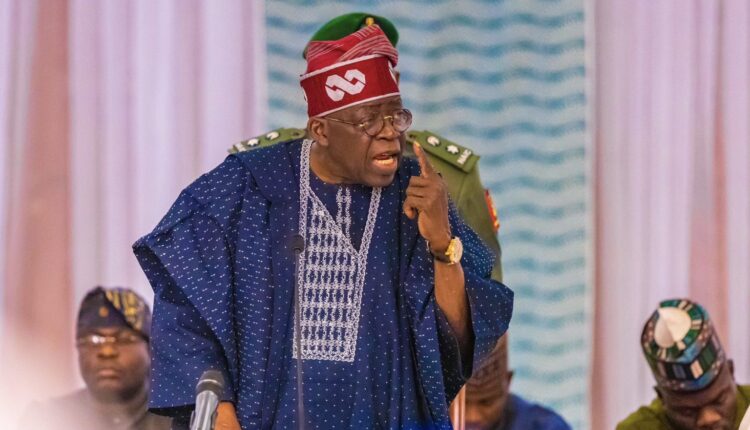According to the data, the government headed by President Bola Tinubu is projected to shell out around N341.23 billion between the years 2023 and 2027 in order to settle judgment debts.
The Debt Management Office compiled a paper named “Schedule of Promissory Notes Issued by Category as at September 30, 2022.” Within this document, the judgment debts were presented in the form of promissory notes.
A promissory note is a type of debt instrument that contains a written promise by one party (the note’s issuer or maker) to pay another party (the note’s payee) a specific sum of money, either on demand or at a defined future date, according to Investopedia.com. This promise can be made either immediately or at some point in the future.
According to Section 4 of the Act Relating to Government Promissory Notes, the repayment of government promissory notes comes from the general revenue and assets of the federation.
It stated, in part, that “the principal sums and interest represented or secured by any government promissory notes are thus levied upon and shall be payable out of the general revenue and assets of the federation.”
Twelve of the 21 judgment creditors’ promissory notes are expected to be settled during the present administration’s term in office, which is for a period of four years.
While the naira is used for the settlement of two of them, dollars will be used for the remainder.
The two judgment debts that are predominantly denominated in naira would cost around N39.07 billion, while the remainder of the debt, which is denominated in dollars, would cost $393.89 million (approximately N302.61 billion when utilizing the exchange rate provided by the Central Bank of Nigeria, which is N768.27 per dollar).
It was predicted that on August 11, 2023, the new administration would pay off a judgment debt of 1.58 million dollars as their first order of business.
The remaining issues will be resolved between October 15, 2023 and February 15, 2027, respectively.
It has been previously reported that the administration of outgoing President Muhammadu Buhari might potentially pass on judgment debts of at least $715.86 million to the subsequent administration.
The Federal Government was a defendant in multiple court suits that asserted breaches of contract had occurred. Should Nigeria be found guilty in all of the lawsuits that have been brought against it in the previous two years by both domestic and international organizations, it is possible that the country may have to pay out a total of around N7.58 trillion to settle the claims that have been made against it.
In September of the previous year, the former Attorney General of the Federation and Minister of Justice, Abubakar Malami, revealed that the Federal Government had agreed to pay a foreign investor $496 million to settle a long-standing contractual dispute that was worth $5.26 billion. The issue had been going on for several years.
According to statements made by the government, the processes of the mediation were carried out under the alternative dispute resolution framework of the International Chamber of Commerce and were directed by Phillip Howell-Richardson.
Olu Daramola (SAN), a lawyer working for Afe Babalola’s Chambers, stated that the government did not make a practice of defending legal disputes.
He made the following statement: “The majority of cases against the government are due to negligence and poor handling, resulting to judgment against the government even where there may have been no judgment since it has been properly defended.” The difficulty, though, is that when you file a case against the government, they may not bother until you receive a ruling in your favor.
“When you already have a judgment, discussions get difficult because if you win your case in court and the person is now negotiating with you to take a smaller sum than the one that was granted in court, surely you won’t be willing to take that,” the speaker says. “When you already have a verdict.”
The SAN continued by saying that the sloppiness with which contracts were signed was causing difficulties for the government.
Prof. Sam Erugo (SAN), on his part, stated that the fact that the Federal Government is regularly facing threats and imminent penalties or liabilities for purported breaches of construction contracts should be unsettling to Nigerians.
Matthew Burkaa, an experienced legal practitioner, was quoted as saying, “Nobody will be thrilled to discover that money that are supposed to be used for other purposes are being spent for the settlement of litigation expenditures.”

